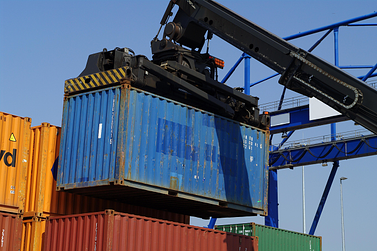 After nine months of negotiations, billions of dollars in damages to the U.S. economy, and critical port slowdowns and shutdowns for shippers who depend on West Coast ports for their imports and exports, the Pacific Maritime Association (PMA) and International Longshore & Warehouse Union (ILWU) released the following announcement of a contract being reached:
After nine months of negotiations, billions of dollars in damages to the U.S. economy, and critical port slowdowns and shutdowns for shippers who depend on West Coast ports for their imports and exports, the Pacific Maritime Association (PMA) and International Longshore & Warehouse Union (ILWU) released the following announcement of a contract being reached:
The Pacific Maritime Association and the International Longshore and Warehouse Union today announced a tentative agreement on a new five-year contract covering workers at all 29 West Coast ports. The deal was reached with assistance from U.S. Secretary of Labor Tom Perez and Federal Mediation and Conciliation Service Deputy Director Scot Beckenbaugh.The parties will not be releasing details of the agreement at this time. The agreement is subject to ratification by both parties.
“After more than nine months of negotiations, we are pleased to have reached an agreement that is good for workers and for the industry,” said PMA President James McKenna and ILWU President Bob McEllrath in a joint statement. “We are also pleased that our ports can now resume full operations.”
For shippers there is certainly a relief that the negotiations, which hurt so many businesses that import and export goods through West Coast ports, has finally come to an end.
Even though it is a relief that the drama of contract negotiations is over, this short announcement of a tentative contract agreement being reached is hardly satisfactory for shippers.
At the outstart of negotiations, nine long months ago, there was a pledge from the PMA and ILWU to keep cargo moving through the ports. This pledge was copied and pasted at the bottom of several joint statements from the two parties going into negotiations.
To shippers, it seems little more than the effort it takes to cut and paste went into keeping that pledge.
The ILWU and PMA know how crucial the ports are to shippers, retailers, and the U.S. economy as a whole, which is why they made the welcomed pledge to keep cargo moving during their negotiations. Only that pledge was not kept.
There is a problem with a system when a single union, the ILWU in this case, has the power to essentially hold the U.S. economy hostage to gain leverage in contract negotiations. With orchestrated work slowdowns or a strike, the ILWU has the ability to slow or halt port production to the point of causing permanent damage to U.S. businesses and the economy.
Using lockouts, the PMA can do the same thing, shutting down depended upon ports to put pressure on the ILWU through lost wages to union members.
This long negotiation period saw both orchestrated slowdowns from the ILWU, though the union would deny it, and mini lockouts from the PMA. Shippers and the economy were left to wriggle and suffer as the ILWU and PMA selfishly only looked at their own interests.
If the PMA and ILWU looked at the bigger picture, they would see such a disregard for shippers and the economy is not in either party’s best interest.
It wasn’t until the threat of negotiations being moved from warm California to cold Washington, D.C. that this tentative contract agreement suddenly appeared.
Justin Pritchard of the Associated Press reported on Thursday, February 19th that Secretary of Labor Thomas Perez gave the ILWU and PMA the deadline of reaching an agreement by Friday, February 20th or negotiations would have to move to the nation’s capital.
Amazing how the ILWU and PMA were suddenly able to meet that deadline.
Already, the spin is starting that this is a big win for the Obama Administration.
“Helping resolve this dispute has been a top priority,” Press Secretary Josh Ernest said in a statement on Friday, February 20th after the agreement was made.
What a laugh. Since the beginning of negotiations retailers and shippers have been pleading with the White House to get involved in these negotiations and prevent damage to businesses and the U.S. economy.
The White House sat back doing nothing, insisting the ILWU and PMA could work it out on their own while shippers and American businesses lost international business partners, holiday inventory, money, and more.
It was not until the damage these negotiations and the port congestion has been having on the economy hit mainstream media headlines in the last couple weeks that the Obama Administration finally stepped up and got involved.
Shippers, retailers, and the U.S. economy deserve better. Better from government representatives who ignore letter after letter requesting action to prevent economic damages until it’s a big media headline. Better from the ports and unions who put their interests ahead of the rest of the economy without so much as an apology in their announcement of a finally reached contract agreement. Better.
In the end, U.S. businesses and the rest of the world’s nations know that American ports cannot be counted on to deliver whenever it’s time for unions to negotiate a new contract. Something has to change. Other countries can find (and business partners around the world have found) more dependable business partners to do business with in alternative to U.S. businesses that can’t get their products past the ports.
U.S. shippers are looking for alternatives too.


